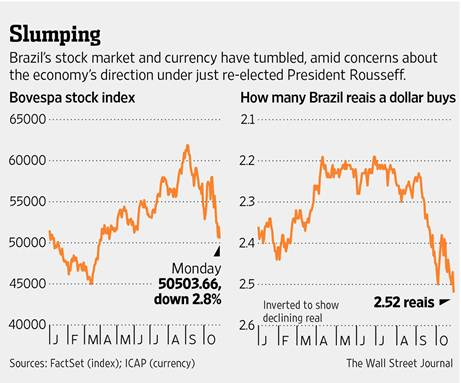BRASIL
A hundred years ago, I studied international relations in school (the Sykes-Picot Treaty was a hotly-debated current topic among us). For the few of us focused on the Third World (now given the more agreeable, if not optimistic, label of developing countries), the research on Brasil could be summarized in a pithy, and unfortunately, accurate phrase: “Brasil is the country of the future; and always will be.”
But then China began devouring every ounce (um..kilo) of ore and agriculture Brasil could dig or grow, thus catapulting the Brazilian economy to 7th largest in the world. The future had arrived.
A string of competent presidents, culminating with the visionary Fernando Henrique Cardoso (1995-2002) set Brasil on the path of deregulation and free markets. Even the radical socialist Lula (formally, Luiz Inacio Lula da Silva, but know universally by one name, much like Madonna and Cher—I’m clearly dating myself) managed to recognize a good thing and for the most part kept his hands off the free market. Along with China’s limitless appetite, Brasil lifted millions out of poverty.
Lula’s hand-picked successor, Dilma Rousseff, a former Marxist guerrilla who was tortured during the military dictatorship, shared Lula’s vision of wealth distribution, but where Lula understood the economy needed to create wealth in order to redistribute it, Dilma (also universally known by her one name) prioritized redistribution. The economy never broke its dependence on mining and agriculture (although Embraer makes very good jets), and when China’s limitless appetite for minerals and food actually had a limit, Brasil’s economy tanked. Dilma never strayed from her priority of wealth confiscation (I mean, redistribution), which had the advantage of consistency, but also the disadvantage of economic self-flagellation. GDP growth is zero this year, which may be a little better than Venezuela or Argentina, but will trail every other country in Latin America.
Sunday, the voters spoke, and rewarded Dilma with another term. Monday, the markets spoke, and sent the currency, bonds and equities to new lows (the chart below is in today’s WSJ). Barring some volte-face, sadly it appears that Brasil, once again, will always be the country of the future.


